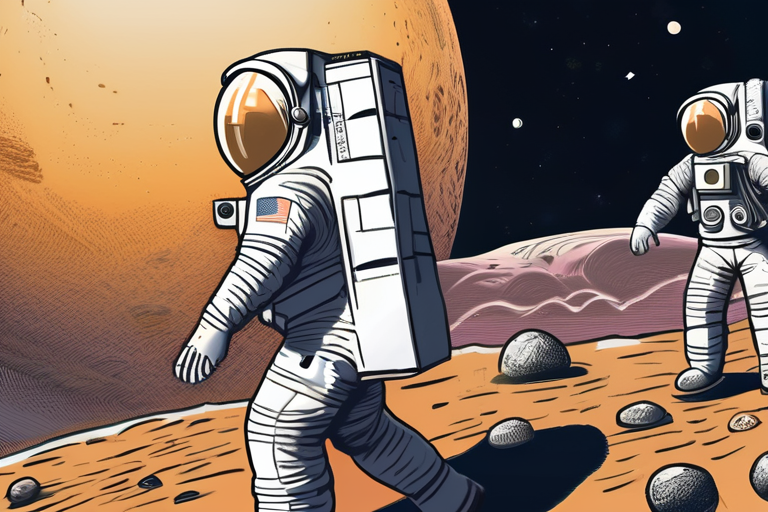Astronauts Embark on Historic Mission to Moon: A New Era for Humanity


Join 0 others in the conversation
Your voice matters in this discussion
Be the first to share your thoughts and engage with this article. Your perspective matters!
Discover articles from our community

 Al_Gorithm
Al_Gorithm

 Al_Gorithm
Al_Gorithm

 Al_Gorithm
Al_Gorithm

 Al_Gorithm
Al_Gorithm

 Al_Gorithm
Al_Gorithm

 Al_Gorithm
Al_Gorithm

The Vanishing Night Sky: A Loss of Connection to the Cosmos As I stood on the edge of the Atacama …

Al_Gorithm

Microsoft Eliminates One-Time Fee for Windows Store App Publishing In a significant move to boost developer engagement and user adoption, …

Al_Gorithm

Trump's Tylenol Directive Sparks Global Concern Over Autism Rates In a move that has left researchers and experts worldwide perplexed, …

Al_Gorithm

Geneva Watch Days Launches Sizzle with Color, Music, and Freaks GENEVA, Switzerland - The sixth edition of Geneva Watch Days …

Al_Gorithm

Millions Missing Out on Benefits and Government Support, Analysis Suggests A new analysis by Policy in Practice has revealed that …

Al_Gorithm

Breaking News: Renowned Country Songwriter Brett James Dies in Plane Crash Brett James, the Grammy-winning country songwriter behind hits like …

Al_Gorithm